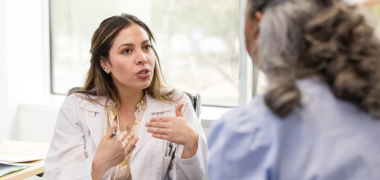
This role has a high level of AI exposure. While some human skills are required, many tasks could be automated or replaced by new technology.
Explore all careersA Clinical Researcher advances medical science by designing and managing clinical trials, collaborating with stakeholders to ensure ethical compliance.
Get qualified to work as a Clinical Researcher with a course recognised across Australia. Speak to a training provider to learn more.




Browse occupations related to Clinical Researcher



If you’re considering a career as a Clinical Researcher, it's essential to select the right courses to equip you with the necessary skills and knowledge. In Canberra, you can explore a variety of Clinical Researcher courses that cater to experienced learners. Notably, the Bachelor of Medical Science, Bachelor of Science (Biology), and the Bachelor of Biomedical Science are popular options provided by recognised institutions like the University of Canberra. These qualifications not only enhance your academic credentials but also pave the way for a rewarding career in clinical research.
The Clinical Researcher role is interconnected with various fields of study such as Healthcare and Pathology, opening doors to multiple career paths. Graduates from Canberra may find opportunities in roles like Medical Laboratory Technician, Pathology Assistant, and Phlebotomist, among others. By choosing the right Clinical Researcher courses in Canberra, you can develop a robust skill set that aligns with these evolving job markets.
As you pursue your studies, consider how the Clinical Researcher field offers a unique opportunity to engage in impactful research that can lead to breakthroughs in healthcare. Courses available in the Canberra area, such as those offered by the University of Canberra, provide a comprehensive educational experience that prepares you for advanced roles. In addition to becoming a Clinical Researcher, you might also explore linked professions such as Clinical Research Coordinator, Medical Laboratory Scientist, and Medical Scientist, each offering diverse pathways and the chance to contribute to significant medical advances.
Ultimately, taking up Clinical Researcher courses in Canberra not only prepares you academically but also empowers you to embark on a fulfilling career journey. When you study in this vibrant city, you gain an educational advantage and the potential to impact the healthcare sector positively. Therefore, whether your aspirations lie in becoming a Pathologist or a Medical Researcher, the courses offered here will serve as a strong foundation for your success. Take the next step in your professional journey and explore these valuable educational opportunities today!